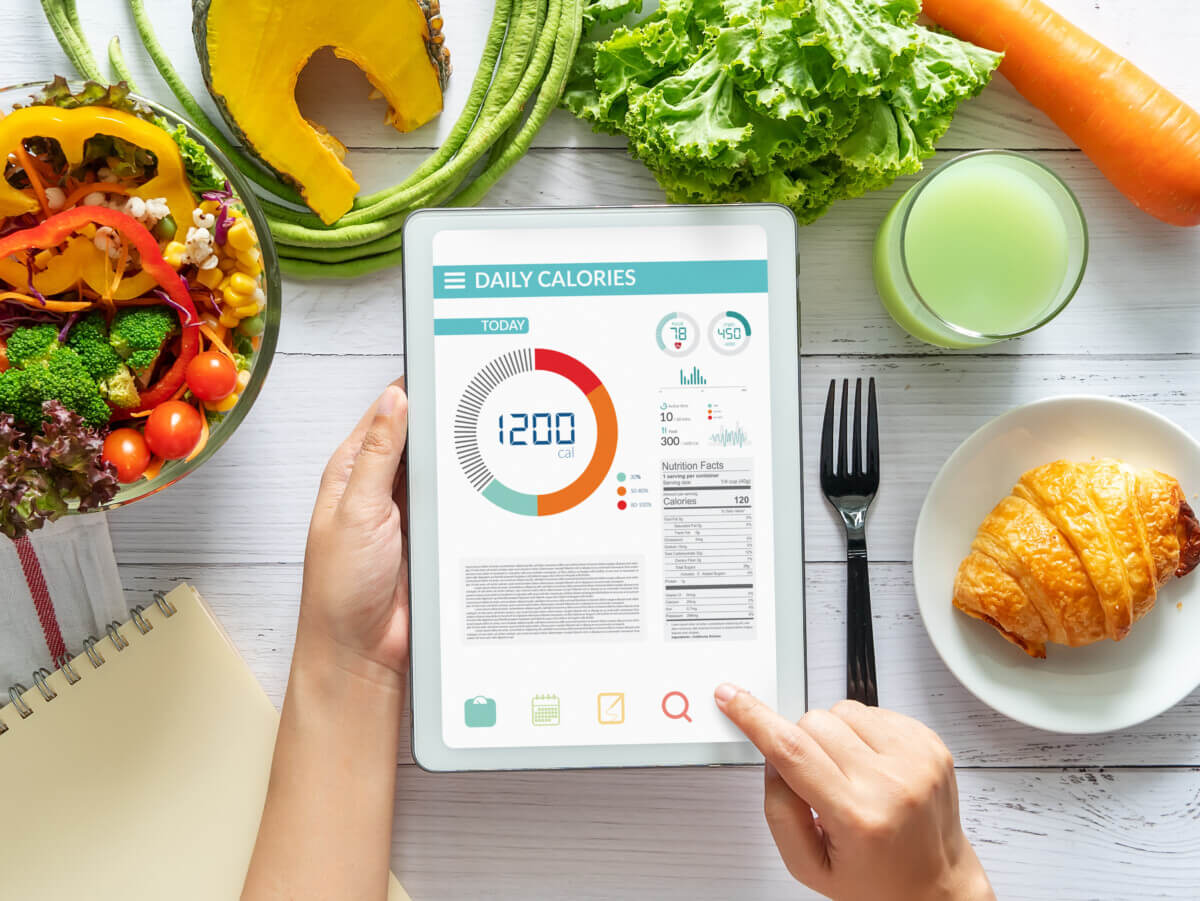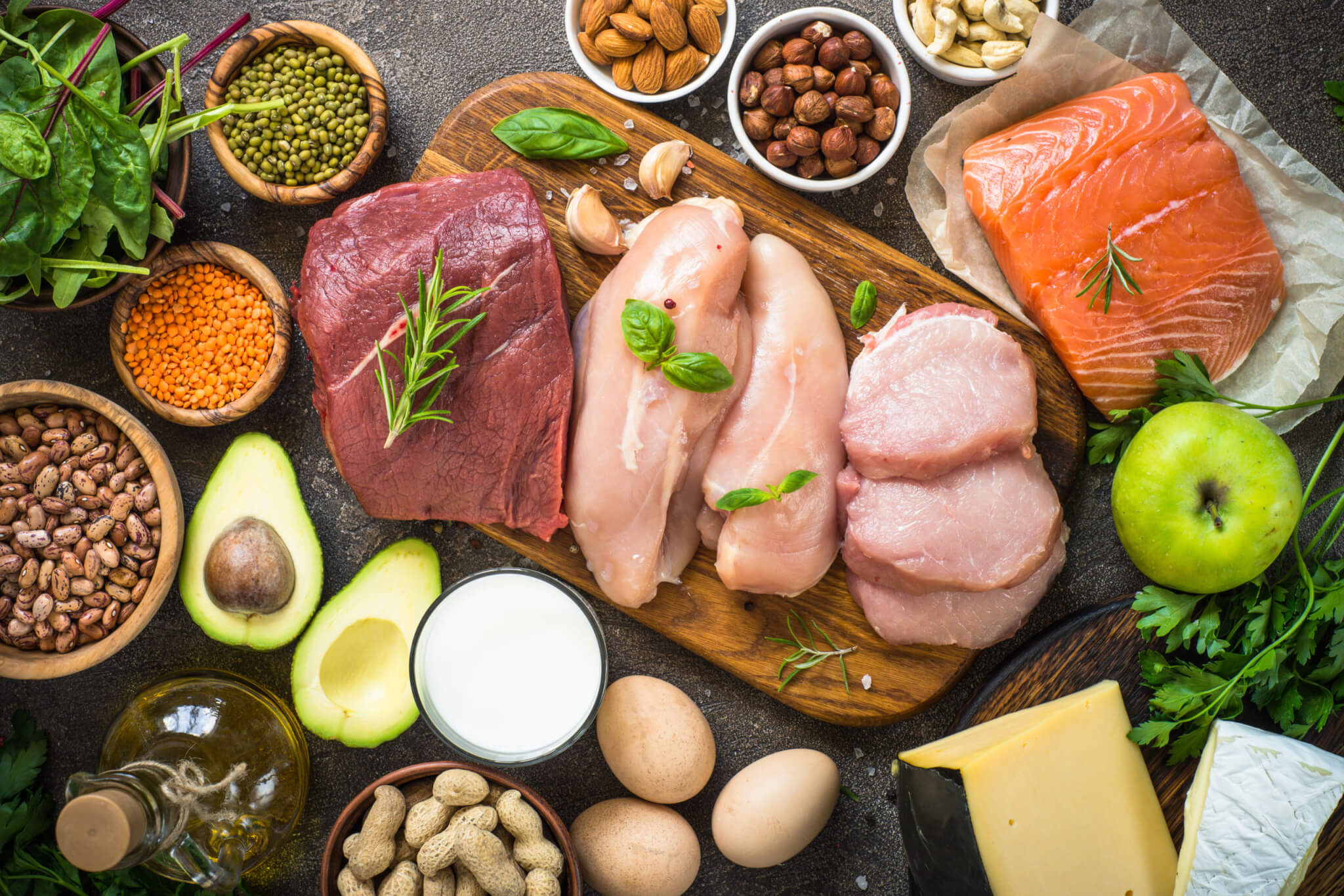
Weight loss isn’t as simple as energy in, energy out. (Photo by asiandelight on Shutterstock)
When it comes to nutrition, you've probably had “calories in, calories out” drilled into your head at some point. Weight loss, calories, and macros are always the leading topics in the world of nutrition and health. Between programs like Weight Watchers and Nutrisystem and apps like MyFitnessPal and Noom, tracking calories has been pushed as the way to better health. But does it actually work?
If you are on a new weight loss or health journey and have never thought about your calorie intake before, it might be worth it to start looking at them more closely. This will give you a baseline idea of what you're eating and the amount of calories you're taking in each day. Sometimes, people take it a step further and track actual calories for each meal and snack to capture the best picture. While I don't doubt that it can be a useful tool for many people, it probably isn't suitable long-term for a few reasons.
The most significant thing that happens when people start calorie tracking is that they get fixated on those numbers and nothing else. They don't consider the importance of vitamins, minerals, fiber, and other nutrients. Instead, they focus on tallying the lowest numbers possible by the end of the day. “Low-calorie” does not mean healthy, just like “high-calorie” does not mean unhealthy.
Theoretically, what's better for weight loss may not be what's best for overall health. For example, egg whites have far fewer calories than whole eggs, so you can eat them in volume, pack in a lot of protein, and get full on fewer calories. However, most of the vitamins and minerals are in the yolk part of the egg. The same goes for things like 100-calorie chips, bars, and desserts. They might be 100 calories, but what nutritional value are they actually providing?
Foods like avocados, nuts, and seeds are definitely higher on the calorie scale per serving, but they are also very nutritious. This means that while you would need to limit how much you eat in an effort to lose weight, you can and still should include foods like these for the fiber, vitamins, minerals, and healthy fats that they provide. Often, those on a calorie-tracking journey lose sight of this.

The other issue is that many who start calorie tracking don't know how to stop. Calorie tracking is a tool, it isn't meant to be a permanent chore. In fact, when it turns into that, your mental health could struggle. There will be times when you are sitting down for a family dinner that you didn't cook and have no idea how many calories are in it. There will be other times when you are out at a restaurant and aren't able to find the calorie information online.
This can send some people into a spiral over what is supposed to be an easygoing eating experience. They could start to feel guilty for having a slightly higher-calorie day of eating. This is also why it's not recommended for people with a history of eating disorders or who are at risk of developing such a disorder to engage in calorie counting. So, while tracking can help you better understand foods and what they provide, over time, this should be a skill you feel more comfortable practicing without apps or services.
At the end of the day, if calorie tracking works for you and you feel it helps you be your best self both physically and mentally, then nothing is inherently wrong with it. Some people just work better with strategy and organization. However, we live in a society that fixates a lot on calories and pressures people into thinking they should track them.
The reality is that weight loss is totally possible without tracking calories at all, and many people have had success by focusing on eating a healthy variety of whole and minimally processed foods without focusing too much on the numbers. If you find that the practice starts to take a big toll on you mentally, then it may be worth it to reconsider how beneficial counting calories really is and possibly seek support from a registered dietitian.










